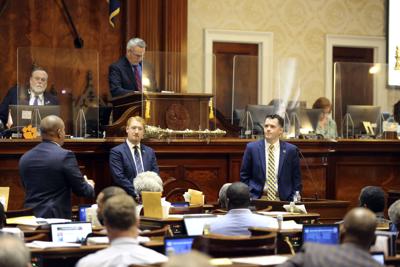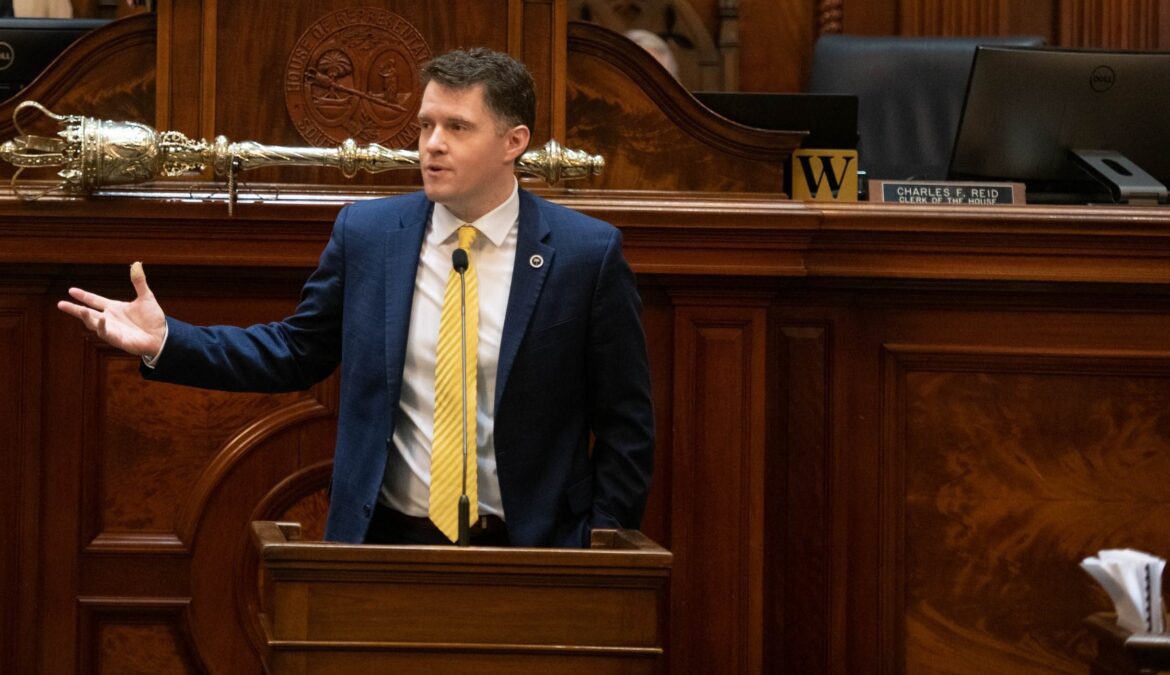On Dec. 9, the House Ways and Means Committee amended House bill H.3126 sponsored by several Upstate lawmakers and led by Rep. Stewart Jones, R-Laurens, to add language that blocks employers in state and local governments and school districts from firing or suspending unvaccinated employees.
The bill, if passed by the Senate and later signed by Gov. Henry McMaster, will make private workers fired or suspended due to their unvaccinated status eligible for unemployment benefits.
It also allocates $10 million to the Department of Health and Environmental Control and the Medical University of South Carolina each to fund COVID-19 testing for private employers.
A previous version of the bill barred private employers from mandating vaccines and firing unvaccinated employees.
The bill would have also made employers liable to be sued by employees who were let go for not following a vaccine requirement. Moreover, employers would have to compensate the fired unvaccinated workers with wages.
That language was struck down after major pushback from the House Democrats and business communities in South Carolina.
Related:Federal court blocks vaccine requirement for federal contractors
Mandate news:Federal judge blocks vaccine mandate for health care workers
More:Circuit Court accepts Gov. Henry McMaster’s argument, stays federal vaccine mandate for businesses
Jones, while introducing the bill to the floor, said that an employer’s move to fire an unvaccinated employee is “discriminatory” in nature. That private businesses and public offices cannot mandate an “unlawful” mandate that violates the individual freedoms of employees.
Minority Leader Rep. Todd Rutherford, D-Richland, implied that a move to control how employers handle vaccine requirements is equivalent to another version of a mandate, but this time passed by the state legislature.
“We’re going to take away the freedom that they [business owners] have to operate their own business,” Rutherford said.
“You don’t have a concern that all of a sudden business owners in this state are going to be told what to do when to do it? And if they don’t do it, that they can get sued? You don’t have a concern about taking that right and creating causes of action against them?” Rutherford asked Jones.
Rep. Russell Ott, D-Calhoun, who is the assistant minority leader, said that the bill came up for discussion rather quickly.
“Like a lot of you, I thought that we were going to be here talking about redistricting. But yet here we are now with a complete assault on our business industry, and our businesses and state of South Carolina,” Ott said.
Ott highlighted the COVID-19 liability protection act passed by the legislature to protect business owners from being sued in the event someone contracted COVID-19. But this bill, he said, would open them up to liability lawsuits.
Major business groups such as the SC Chamber of Commerce, SC Manufacturers Alliance, SC Retail Association as well as regional groups such as the Greenville Chamber of Commerce, OneSpartanburg, Anderson Area Chamber of Commerce have urged the lawmakers to reject the bill for businesses to work “without government overreach” and leave employment decisions up to businesses.
“We ask the General Assembly to support free enterprise and reject this unprecedented step against the internal operations of our state’s job creators,” a letter by the group said.
The SC Trucking Association, in a separate statement, said while the association recognized this to be a result of conflict between federal vaccine mandates and state jurisdiction, this bill created a “no-win” situation for all businesses.
“We oppose the federal mandate, but are not anti-vaccine,” the SCTA’s press statement said. “Our organization generally opposes government mandates. This amended legislation is a mandate of sorts; it’s a mandated prohibition on the rights of free enterprise”
“When it comes to vaccination policies: Some do, some don’t. Some will, some won’t,” the statement continued. “We assert that businesses should be able to keep the right to set their own conditions for employment, and people can choose what’s in their own best interest.”
Ott and Justin Bamberg, D-Bamberg, further questioned the fiscal impact of this bill, though they said it was early to tell just how wide the impact would be.
Right before the end of a six-hour long debate, amendments by Majority Leader Gary Simrill, R-York, Ways and Means Chair Murrell Smith, R-Sumter and David Hiott, R-Pickens struck down the provision related to private employers and refashioned the final language of the bill.
The bill will next go to the Senate, which will reconvene in January when the legislative session begins.
On the House floor, the major opposition to the bill was mounted by House Democrats who said that this was a move by Republican lawmakers to pacify constituents and leverage the issue ahead of next year’s elections.
The legislature had already set aside a special order session to discuss and pass the redistricting bill that would decide South Carolina’s voting districts, a federal requirement enshrined in the U.S. Constitution.
Already, voting rights advocates and a few House Democrats from minority communities were concerned the new voting lines diluted minority votes by creating artificial lines that shuttered competitiveness and protected incumbents.
But ever since the redistricting vote began, the push for bills to block the federal vaccine mandate has continued to overshadow the redistricting process, even as federal courts in Georgia, Missouri and Louisiana blocked the vaccine mandate on health care workers and businesses.
Devyani Chhetri is the state government watchdog reporter. You can reach her at [email protected] or @ChhetriDevyani on Twitter.






